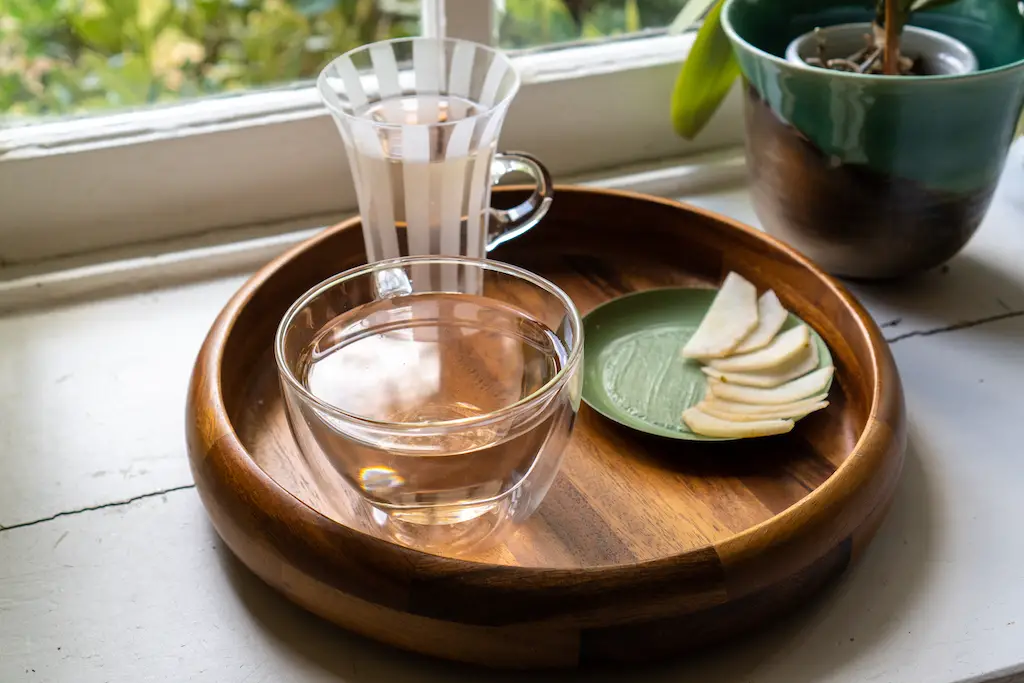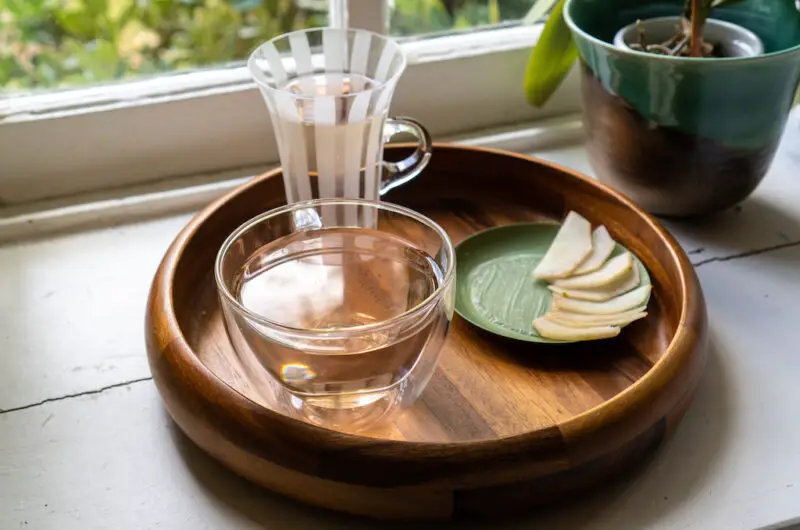This post may contain affiliate links. Please read my disclosure for details at the bottom of this page. As an Amazon Associate, I earn from qualifying purchases on this Korean omija tea recipe. I hope you enjoy learning about omija cha, otherwise known as omija tea, Schisandra tea, schizandra tea, magnolia berry tea, or five-flavor berry tea!
Are you looking for a light and refreshing beverage to enjoy at home? If so, try making Korean ‘omija cha.’ This delicious Schisandra tea is a healthy option to replace your water or other drinks of choice! Learn how to make this delicious Korean tea recipe here!
What Is Omija Tea?
‘Omija cha’ (오미자차) is a traditional Korean tea made from dried Schisandra berries, sometimes called magnolia berries or the five-flavor fruit. In English, the term ‘omija’ (오미자) refers to ‘Schisandra berry,’ ‘magnolia berry,’ or ‘five-flavored fruit.’ Then, ‘Cha’ (차) translates to ‘tea.’
The berries used to make this recipe are known as the five-flavored fruit because of their unique flavor profile. The five flavors are sourness, sweetness, bitterness, pungentness, and saltiness. While uncommon in most Western cooking, these berries are often used in both Eastern cooking and medicine.
Note: To learn more about this five-flavored fruit in Korean cooking, I recommend checking out my informative article about this ingredient.
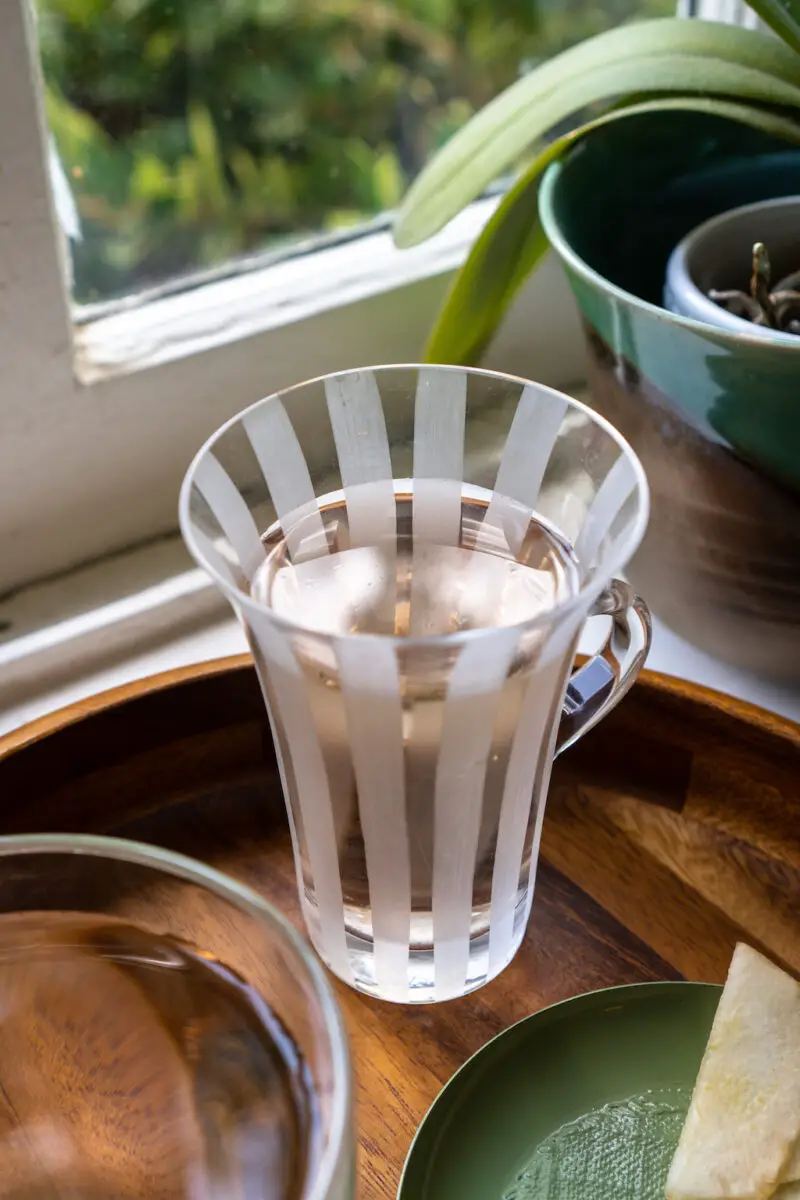
Omija Tea Ingredients:
Below, I list the ingredients used to make this deliciously refreshing Korean tea. I also linked any informative articles on my site connected to these Korean ingredients:
Omija Tea Ingredients:
- Dried Schisandra Berries (Learn about this ingredient here)
- Water
- Honey or Sugar
- Korean Pear aka Asian Pear (Learn about this ingredient here)
- Ice
Omija Cha Tips & Tricks:
Here, I list some helpful tips & tricks to help you make this Korean five-flavor-fruit tea. If you have any questions, leave a comment below or email me at [email protected]!
- In most Korean households, people consume this tea either chilled or at room temperature because brewing it in temperatures above 45°C (113°F) can bring out too much of the bitter and sour notes.
- To steep the dried berries, place them in cold water overnight. Then strain and discard the berries while keeping the liquid. Serve at room temperature.
- Alternatively, if you desire this tea chilled, place it in the refrigerator until cold. Then serve.
- While this tea is already delicious, you can add honey or sugar if you need to sweeten it.
- Finally, people often add little pieces of Korean pears to this refreshing tea. This step is entirely optional but I find it to be delicious. It adds a bit of crunch infused with the tea’s flavors that you can enjoy at the end of the drink. You can also add pear on the side like I did in the photos.
- Note that the color of your tea may differ after steeping depending on how long you let it sit, the number of berries used, and the actual berries you bought. The color can range from a dark reddish-pink tent to more orange. So, don’t be surprised if your tea looks slightly different that my tea photographed here!
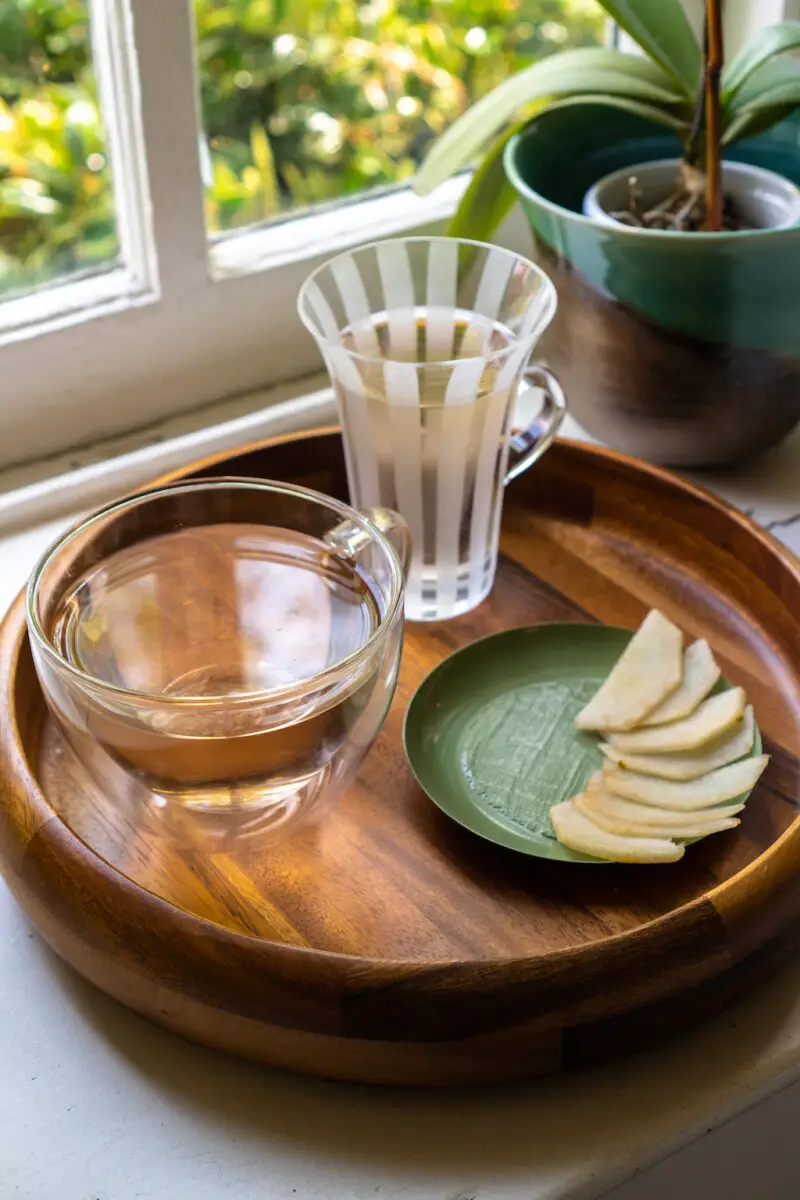
Omija Cha Frequently Asked Questions:
Now that we learned some tips & tricks for making this Korean tea recipe, I want to answer some questions you may have as well! If I do not answer your question, feel free to leave a comment in the section below or email me at [email protected].
Does This Recipe Contain Major Allergens? (Gluten, Soy, Etc.)
This recipe does not contain 9 of the 9 major allergens. It does not contain:
- Fish
- Tree nuts
- Peanuts
- Crustacean shellfish
- Eggs
- Milk
- Wheat (Gluten)
- Soybean
- Sesame
If you have further questions or need help with another allergen, let me know in the comments or email me!
Is This Recipe Vegetarian or Vegan?
Excitingly, this recipe is both vegetarian and vegan! This recipe can be enjoyed by everyone following a specific diet or lifestyle.
Where Do I Buy the Ingredients?
You can buy the dried berries necessary for this recipe at your local Asian or Korean grocery store. If not available there, you can find them online!
Note: If you do not want to buy the dried berries, you can always buy Schisandra tea packets online as well (though Korean brands may be harder to find)!
How Do I Store Leftovers?
To store the leftover tea, place it in an airtight container (such as a carafe) and store it in the refrigerator. Then, you can enjoy iced omija tea for up to a week!
To store leftover dried berries, follow the instructions found on the packaging. I tend to put the berries in an airtight container and store them in the refrigerator.
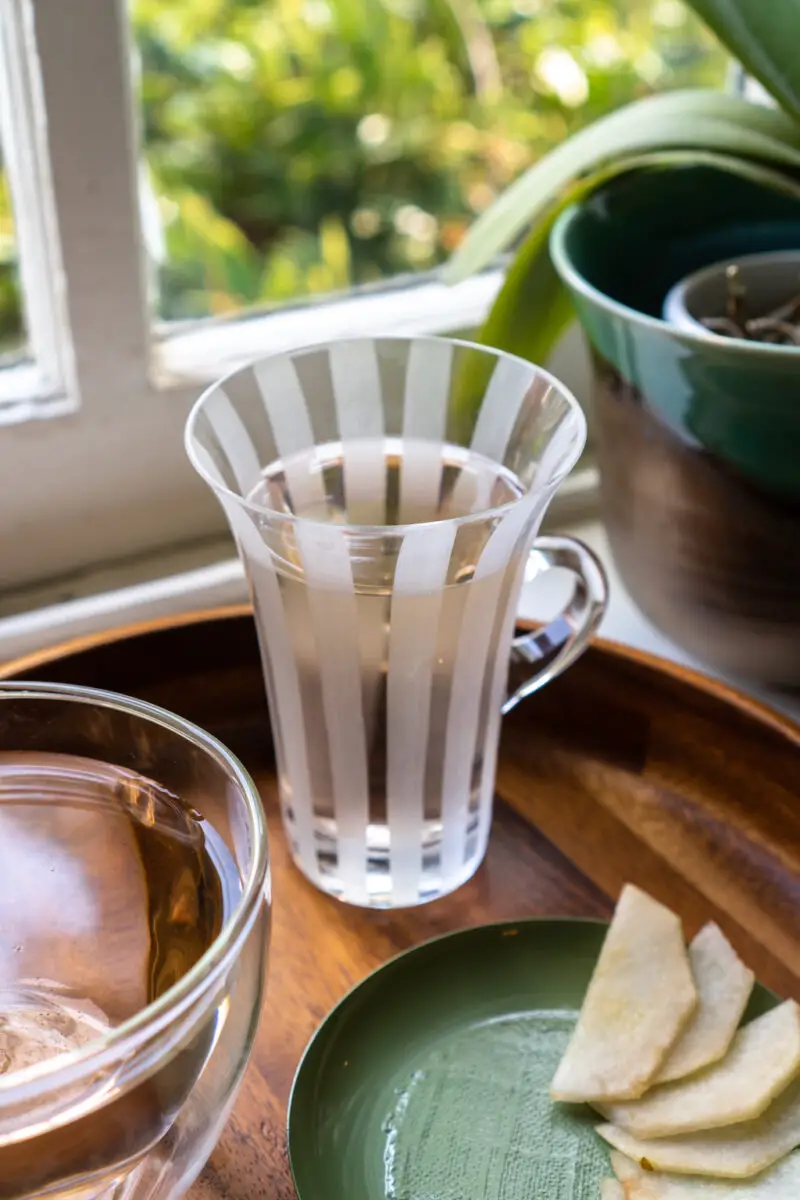
I Hope You Enjoyed Learning How to Make This Korean Omija Tea Recipe!
In the end, I hope you enjoyed learning how to make this deliciously refreshing Korean omija tea! If so, let me know in the comment section! Also, let me know if you have a favorite tea recipe you drink at home!
If you would like to read more about cooking, you can find further recipes on this blog. I listed some of my favorite Carving A Journey recipes below! For reference, many recipes are influenced by my family’s blended Korean and Southern heritage.
Further Carving A Journey Recipes:
If you have any questions or comments, you can also email me at [email protected].
And, finally, I would love to hear from you through our social media as well! You can follow me at @carvingajourney on Instagram, Facebook, and Pinterest. I also started a vlog Youtube channel with my husband! Or, if you would like more articles like these, you can subscribe to the blog by joining the mailing list. Let me know if you try making omija cha! Thank you so much for stopping by!
Carving A Journey is a participant in the Amazon Services LLC Associates Program, an affiliate advertising program designed to provide a means for sites to earn advertising fees by advertising and linking to Amazon.com. Although we may earn commissions for our endorsement, recommendation, testimonial, and/or link to any products or services from this website, these opinions are my own and I fully support these products.

